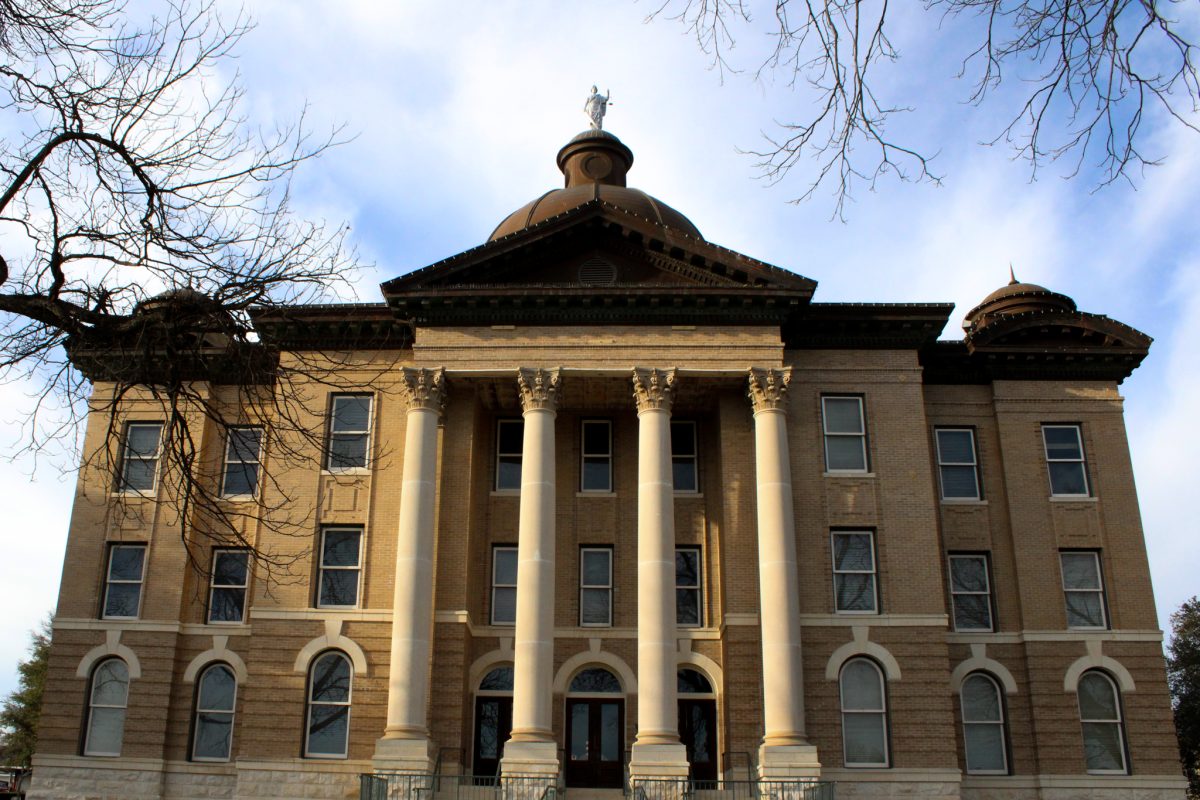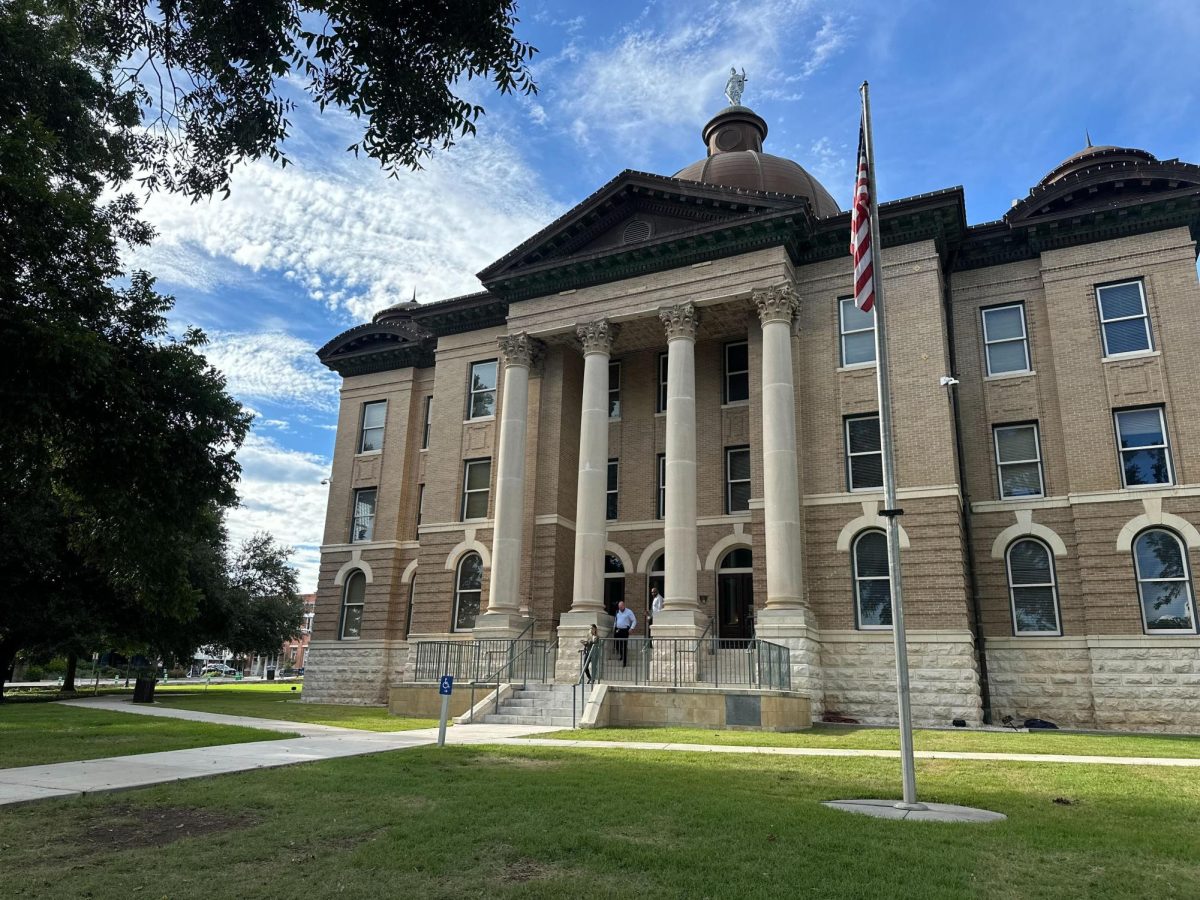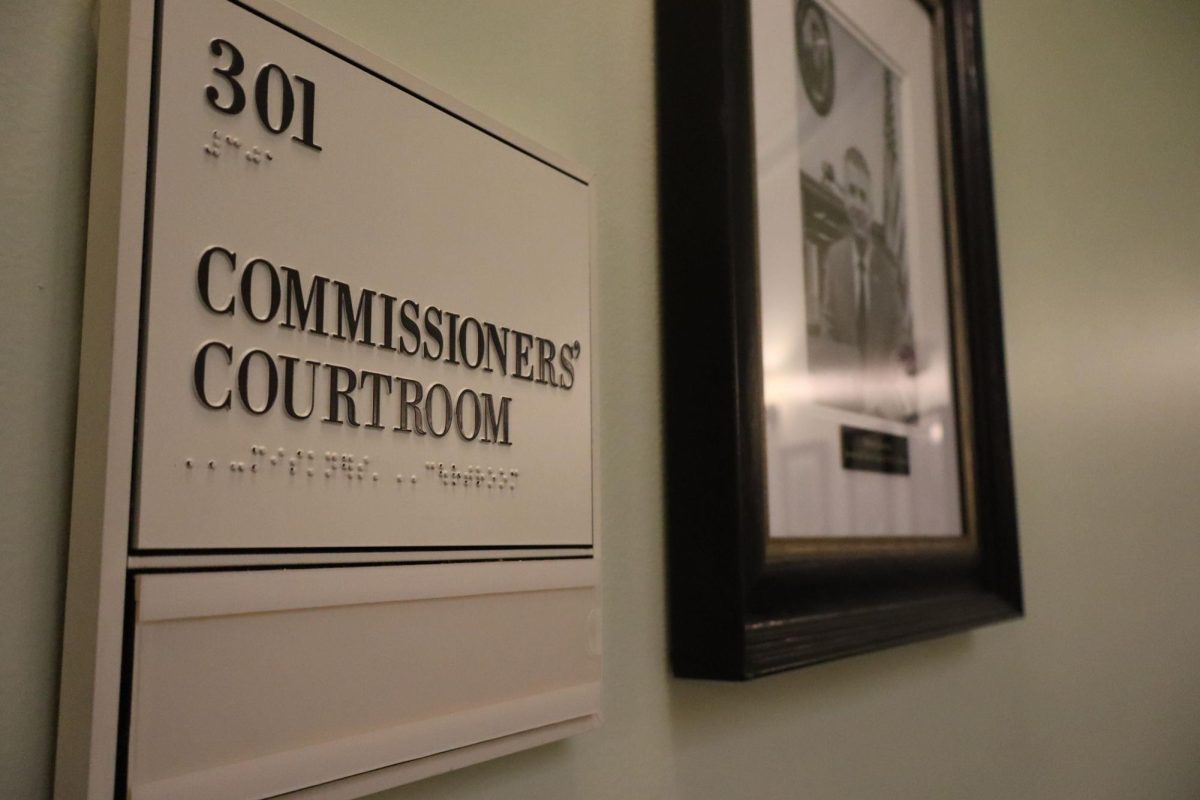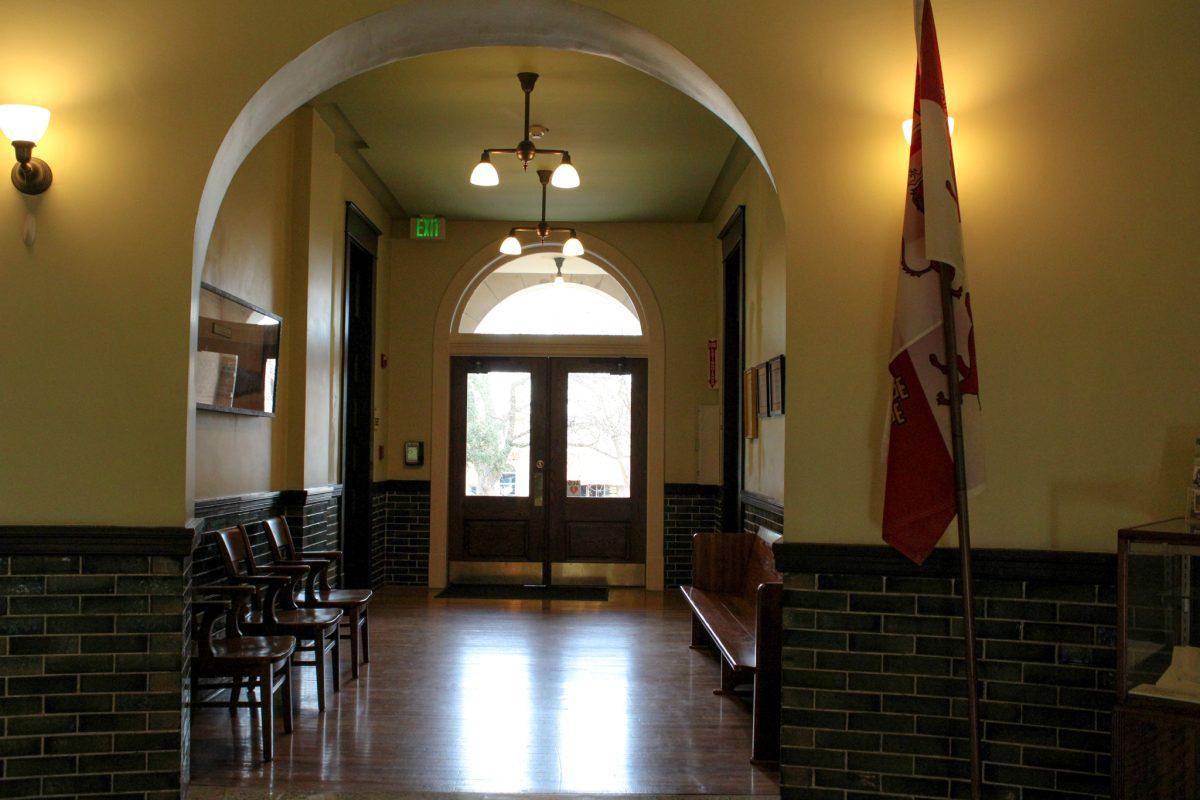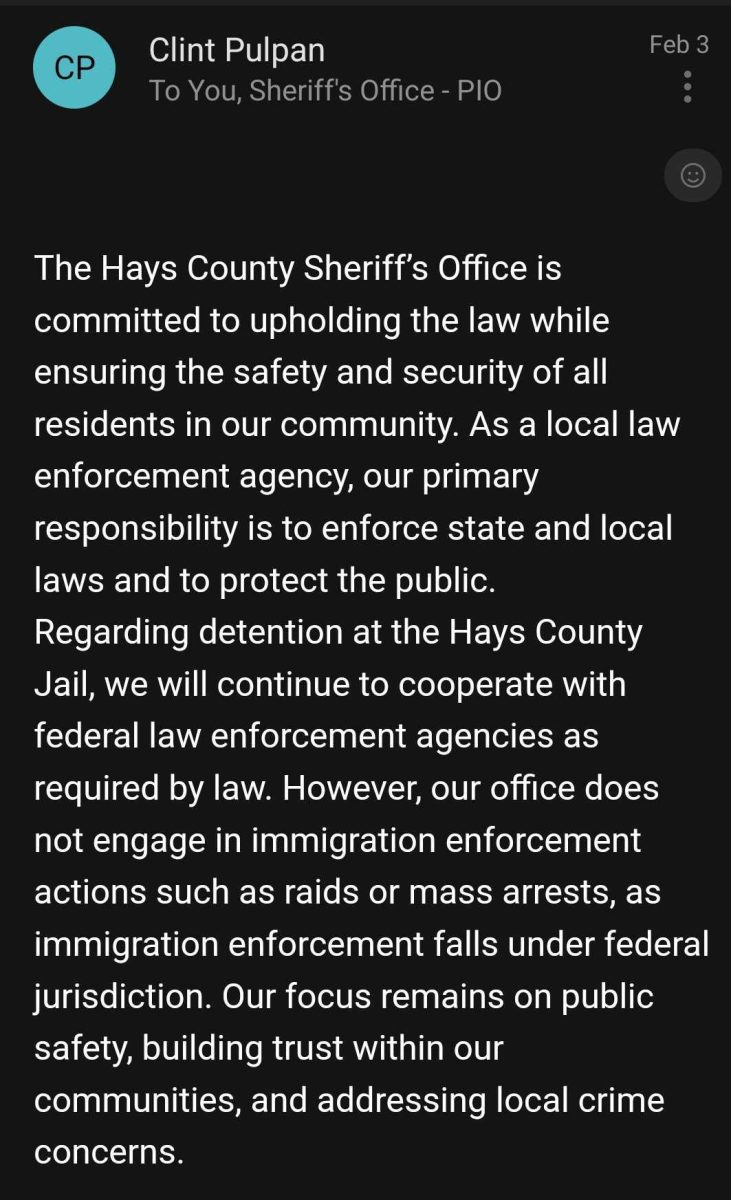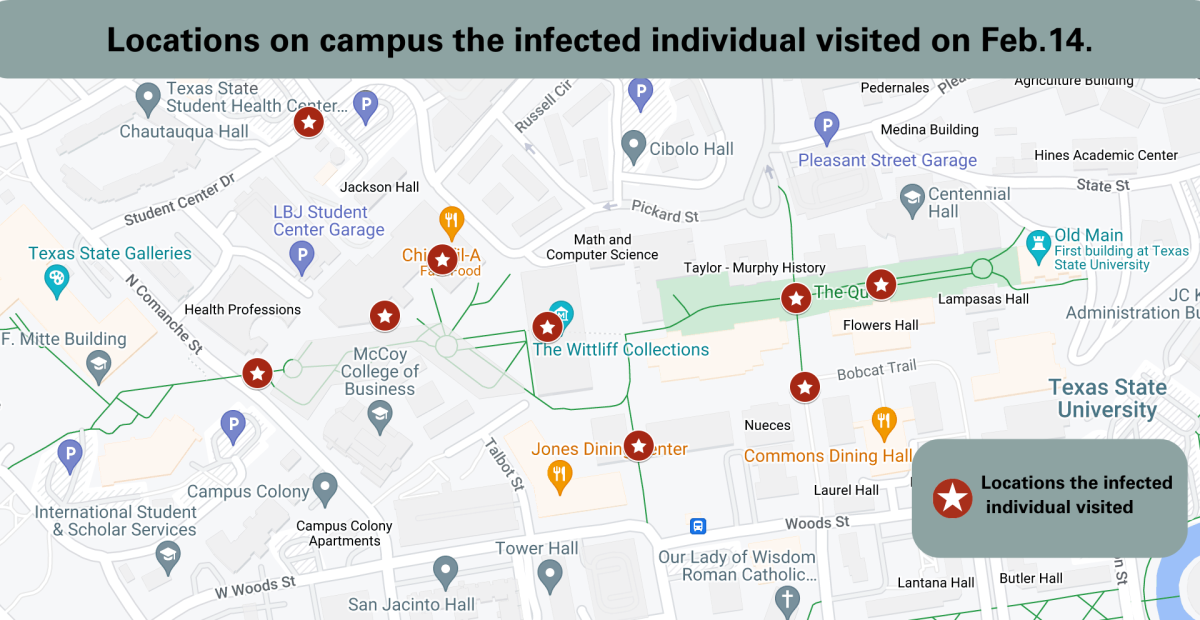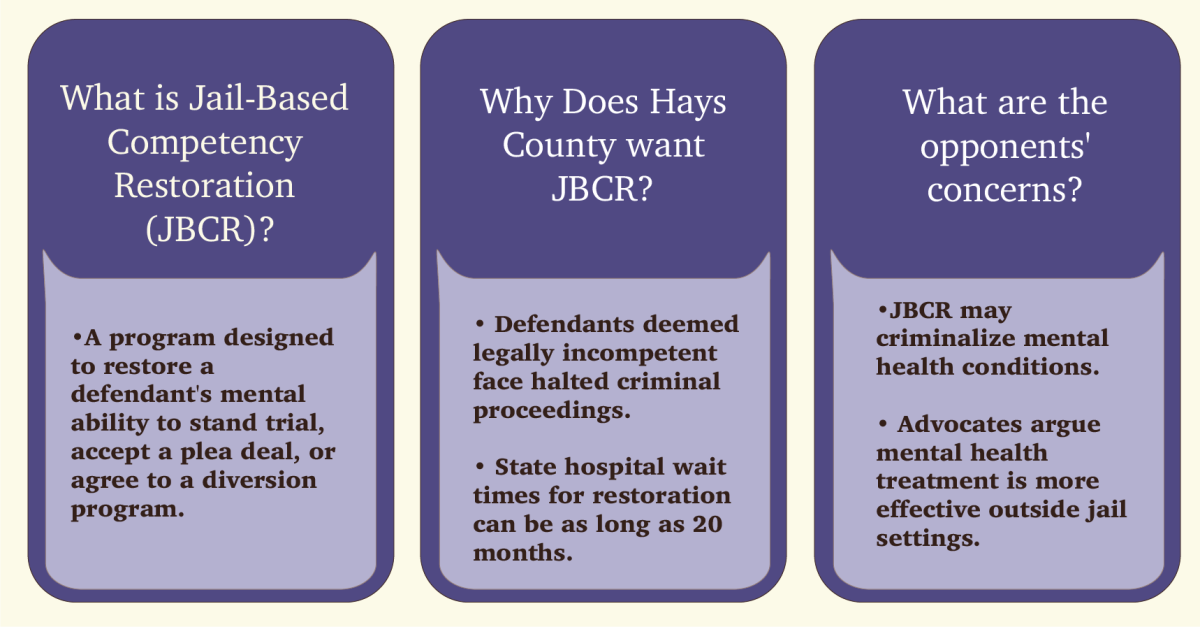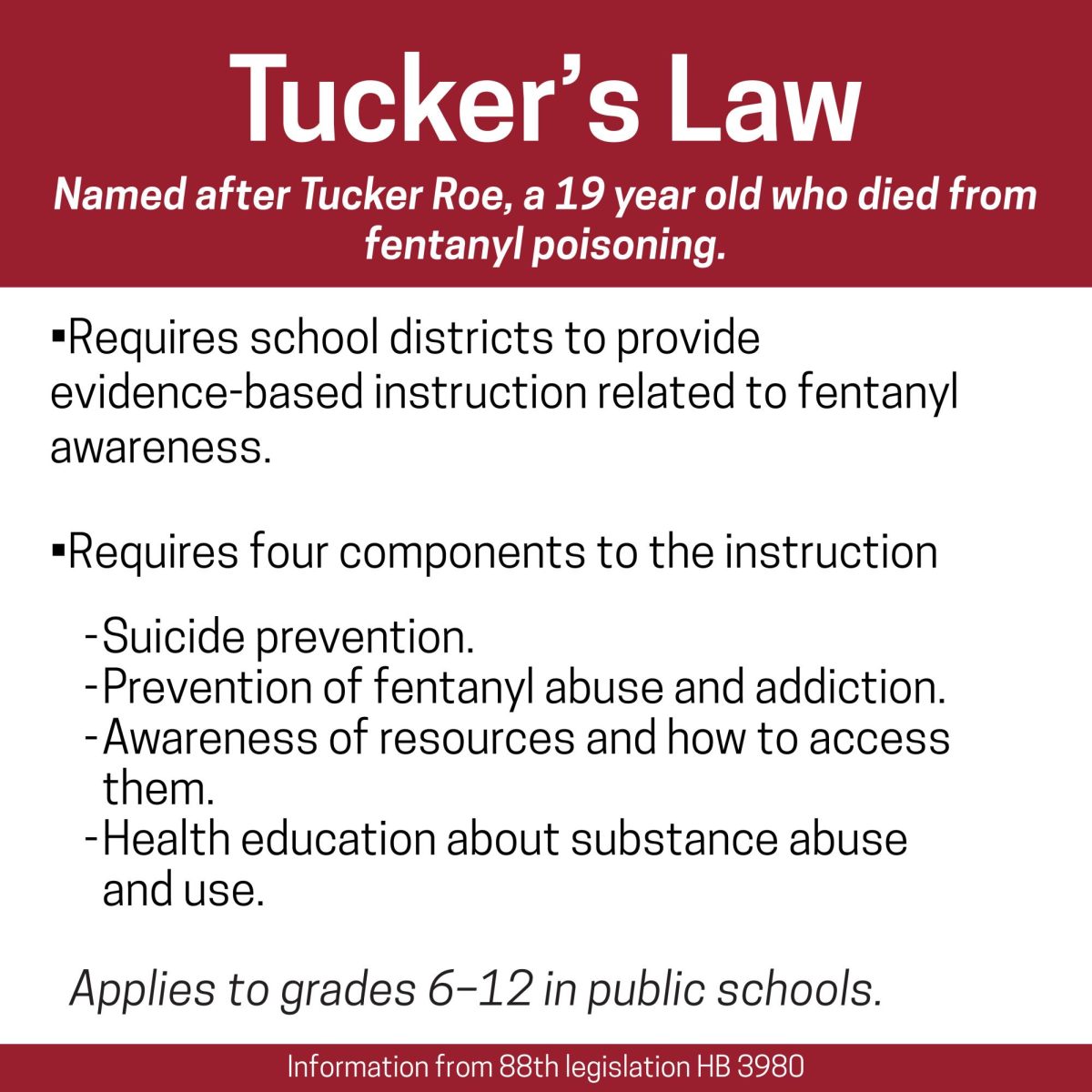Four Hays County residents are suing Hays County over an alleged Texas Open Meetings Act (TOMA) violation when approving a road bond election.
The Hays County Commissioner’s court approved placing a $439 million road bond election on the Nov. 5 ballot on Aug. 13.The lawsuit seeks to stop the county from taking any further action to implement the road bond, even if it is approved by the voters.
“Commissioners failed to include the public in shaping the bond package, unlike previous bond proposals that were shaped by citizen bond advisory committees,” a press release emailed to The Star stated.
According to lead plaintiff Les Carnes, the county put early mentions of the road bonds in the ‘miscellaneous’ section of the agendas, instead of the ‘roads’ section. Carnes believes that was done in an attempt to hide the bond from the public.
On the July 2, Aug. 6 and Aug. 13 commissioners court agendas, the road bond was listed on the ‘miscellaneous’ section.
“You know, you’re supposed to be doing government in the daylight, but this looks like it’s a backroom deal,” Carnes said. “Nobody knew about this stuff, because the way they did it, the way they put it on the agendas, was miscellaneous.”
In the Aug. 20 commissioners court meeting, the court did not choose to create a citizens advisory panel. The panel would have had one citizen from each county precinct to give input on the planning of the road bond project.
“I am a little confused on the purpose of [a citizens advisory panel],” Commissioner Michelle Cohen said in the Aug. 20 Commissioners Court meeting. “I think each of us have our own plans and we know our constituents and we know our projects and we’re the most informed [people] about our projects. I don’t see how the community would help.”
Carnes said the lack of public transparency in the meetings, lack of a citizens advisory panel and limiting the time to discuss issues with the road bond to just three minutes, violated TOMA.
“[The road bond] had 31 projects, and you’re given three minutes to speak on 31 projects,” Carnes said. “Well how the [expletive] can you do that?”
Jim Camp, longtime Hays County resident and another plaintiff in the suit, said he hopes the lawsuit serves as a message to commissioners that they need to be more upfront about the decisions they make going forward.
“This may not have any impact on the election itself but even if we lose, the commissioners court is on notice that they can’t do the backroom deals without the public being involved, I mean we’re talking about $439 million,” Camp said.
A major cause of concern for the plaintiffs is that the current road bond plans include construction over the recharge zone for the Edwards Aquifer.
“The bond package includes projects over and upstream of the Edwards Aquifer recharge zone – the source of most of Hays County’s water supplies and of San Marcos Springs,” the plaintiffs press release said.
According to the lawsuit, the plaintiffs are seeking no monetary gain, but wish to put a permanent pause on work related to the road bond and void the order for a road bond election on Nov. 5.
“Plaintiffs’ goal is to force the County Commissioners to appoint a bond advisory committee to shape a county bond package, as was done with previous bond packages, and to bring back a better bond proposal supported by public input for a vote in May or November of 2025,” The press release stated.
The Star reached out to commissioners and the lead attorney for comment, but received no responses.





